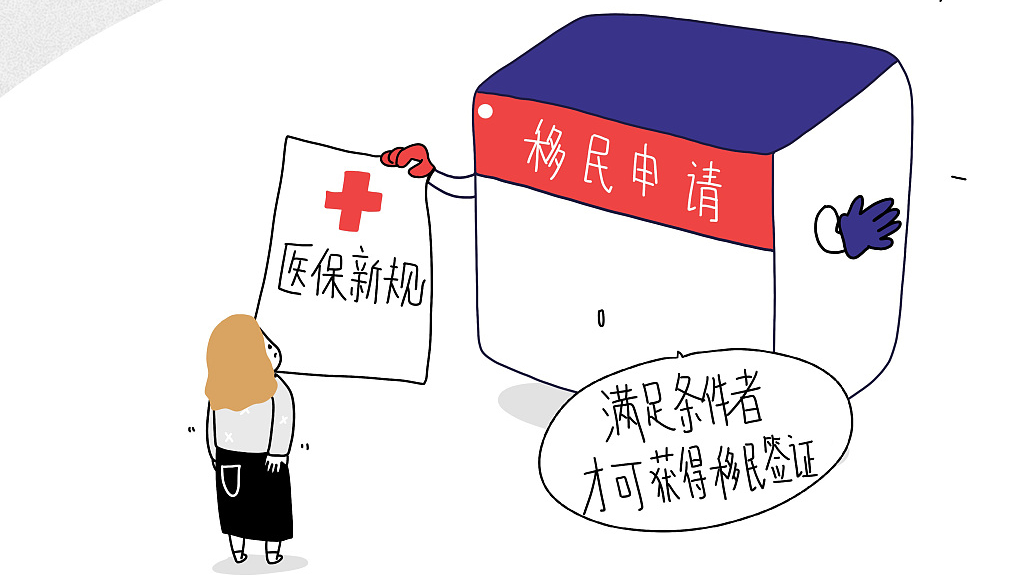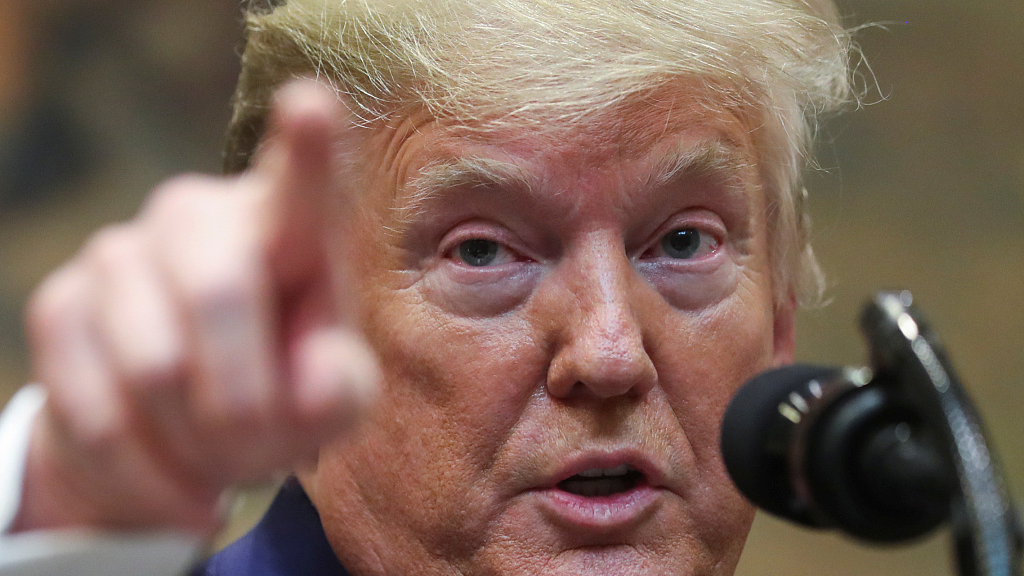
The White House announces new rules: Immigrant visa applicants must demonstrate the ability to undertake medical insurance. /VCG image
The White House announces new rules: Immigrant visa applicants must demonstrate the ability to undertake medical insurance. /VCG image
U.S. President Donald Trump signed a new proclamation Friday that would bar immigrants from entering the country unless they prove to have health insurance or have the means of obtaining an insurance policy.
It's the latest move by the White House limiting would-be legal migrants from obtaining a visa from abroad, while steering away from a family-based immigration system and into a merit-based system.
The new rule is set to take effect on November 3 and would also apply to the spouses and parents of U.S. citizens, which could split migrant families who are in the U.S. or could affect plans for reunification. It would not affect those in the U.S. already including lawful permanent residents while also excluding asylum seekers, refugees and children.
Migrants to blame for rising healthcare costs
The proclamation's first couple of paragraphs describe the problem of uncompensated healthcare costs, pointing to "the government" for admitting thousands of migrants into the country "who have not demonstrated any ability to pay for their healthcare costs."
The White House claims lawful migrants are three times more likely than U.S. citizens to not carry insurance, without providing a source.
A 2017 study by the California-based non-profit Kaiser Family Foundation gives some credence to these claims, revealing that 23 percent of lawfully present non-elderly immigrants, and more than four in ten (45 percent) undocumented immigrants, are uninsured compared to less than one in ten (8%) citizens.
"Beyond imposing higher costs on hospitals and other healthcare infrastructure, uninsured individuals often use emergency rooms to seek remedies for a variety of non-emergency conditions, causing overcrowding and delays for those who truly need emergency services. This non-emergency usage places a large burden on taxpayers, who reimburse hospitals for a portion of their uncompensated emergency care costs," read the White House proclamation.
Required health insurance under this policy may be purchased individually or provided by an employer, and it can be short-term coverage or catastrophic.

U.S. President Donald Trump speaks during an event to sign executive orders on "transparency in federal guidance and enforcement" in the Roosevelt Room of the White House in Washington, DC, U.S., October 9, 2019. /VCG Photo
U.S. President Donald Trump speaks during an event to sign executive orders on "transparency in federal guidance and enforcement" in the Roosevelt Room of the White House in Washington, DC, U.S., October 9, 2019. /VCG Photo
The poor in the crosshairs
A related policy was announced in August aimed at temporary and permanent visa applicants who can't meet a Trump administration threshold for income or if they receive any public assistance including Medicaid, welfare, public housing, and food stamps – also referred to as the "public charge" rule.
The rule would prevent overseas visa applicants from entering the U.S. if they are found likely to become public charges, while legal migrants already in the country who are found likely to become public charges will also be barred from adjusting their immigration status, including those seeking to become U.S. citizens.
"The Trump administration is trying to bypass Congress and implement its own merit based-immigration system. It's really a backdoor way of prohibiting low-income people from immigrating,” Charles Wheeler of the Catholic Legal Immigration Network Inc. told Reuters.
The government estimates the status of 382,000 immigrants could immediately be reviewed on those grounds. Immigrant advocates believe the measure could cut legal immigration in half, especially if the policy is extended to U.S. visa applicants at American consulates and embassies around the world.
The "public charge" rule is being challenged in multiple courts to stop it before it goes into effect on October 15.
"This is the Trump administration's latest attempt to restrict immigration to only the wealthy and use economic status to discriminate instead of trying to reunite families," stated Karen Baynes-Dunning, interim president and CEO of the Southern Poverty Law Center.
Baynes believes the Trump administration is using these policies to focus on rallying a "far-right" political base.
Neal Katyal, former acting solicitor general during Obama's administration, echoed similar remarks, saying, "Trump has just issued a ridiculous Executive Order barring immigration visas for those who lack health insurance. If Trump will sell out America's foreign policy to help him win an election, what are the odds he would sell out our domestic policy, too?"
(With input from AP, Reuters)